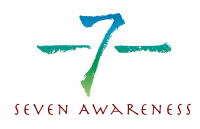|
_To read the full article click here
In his introduction to the ancient Chinese classic text “The Secret of the Golden Flower”, Jung warns us against premature transcendence. He writes: “So it is better for western man if at the start he does not know too much about the secret insight of Eastern wise men, for it would be a case of the ‘right means in the hands of the wrong man’. Instead of allowing himself to be convinced once more that the daemon is an illusion, the Westerner ought again to experience the reality of this illusion. He ought to learn to recognise these psychic forces again, and not wait until his moods, nervous states, and hallucinations make clear to him in the most painful way possible that he is not the only master in his house. The products of the disassociation tendencies are actual psychic personalities of relative value. They are real when they are not recognised as such and are therefore projected; relatively real when they are related to the conscious (in religious terms, when a cult exists); but they are unreal to the extent that consciousness has begun to detach itself from its contents. However, this last is the case only when life has been lived so exhaustively, and with such devotedness, that no more unfulfilled obligations to life exist, when, therefore, no desires that cannot be sacrificed unhesitatingly stand in the way of inner detachment from the world. It is futile to lie to ourselves about this. Wherever we are still attached, we are still possessed; and when one is possessed, it means the existence of something stronger than oneself. (‘Truly from thence thou wilt ne’er come forth until thou has paid the last farthing.’) It is not a matter of indifference whether one calls something a ‘mania’ or a ‘god’. To serve a mania is detestable and undignified, but to serve a god is decidedly more meaningful and more productive because it means an act of submission to a higher, spiritual being. The personification enables one to see the relative reality of the autonomous psychic fragmentary system, and thus makes its assimilation possible and depotentiates the forces of fate. Where the god is not acknowledged, ego-mania develops, and out of this mania comes illness. The teaching of yoga takes acknowledgement of the gods for granted. Its secret instruction is therefore intended only for him whose light of consciousness is on the point of disentangling itself from the powers of fate, in order to enter into the ultimate undivided unity, into the ‘centre of emptiness’, as our text says. ‘To hear such a teaching is difficult to attain in thousands of aeons.’ Clearly the veil of maya cannot be lifted by a mere decision of reason, but demands the most thoroughgoing and persevering preparation consisting in the full payment of all debts to life. For as long as unconditional attachment through cupiditas exists, the veil is not lifted and the heights of a consciousness free of contents and free of illusion are not reached; nor can any trick nor any deceit bring this about. It is an ideal that can be completely realised only in death. Until then there are real and relatively real figures of the unconscious.” From Jung's Commentary to the Secret of the Golden Flower In this passage Jung shows us that he is aware of the non dual reality that lies beyond the relm of psychology. However he is also at pains to point out in no uncertain terms the fact that, like it or not, we are mostly ruled by psychic contents more powerful than ourselves. These are the unconscious complexes which the psyche still pictures as gods, as powers, just as it has done for millennia. Those who have attained to the deepest insights into the nature of consciousness, tell us that these are phantoms, illusions. This is all well and good but does not deal with the fact of their power over us. As Jung says, they are “real” when entirely unconscious and thus projected. That is to say when our own characteristics remain unconscious, and are thus seen as attributes of external events, other people and so on. They are “relatively real” when these projections are taken back and it is understood that these things are not happening to us as events over which we have no control, but are in fact forces within our own psyche. They only become “unreal” when it is seen fully that they are contents of consciousness. They are reflections or images that arise in the pool of empty awareness. This emptiness, this primal ground, is in fact our true and permanent nature, in which the play of images (the play of the gods) arise. This is the highest experience and teaching of the wisdom traditions of the East. But this last can only be real for us when we’ve truly come to it. If we act as if all is illusion, but are not truly seated in the state of empty awareness (in the witness state), we will certainly suffer from dissociation and the powers of the psyche will continue to be real and relatively real, thus ruling our lives. We will not truly be in the “centre of emptiness”, but disembodied and dissociated, only imagining that we have dealt with out stuff. To live in “undivided unity” (advaita) it is necessary to completely accept and include all that we are, without avoidance and without pretence. We must feel into and fully experience all that arises.
1 Comment
|
Julian's Blog
Short pieces from Julian on all aspects of healing, psychology and spirituality Archives
April 2019
Categories
All
|

 RSS Feed
RSS Feed
